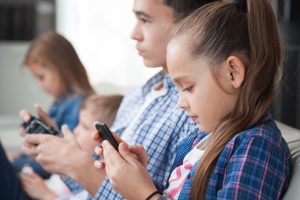School division developing policy on communications devices in schools
By Rob Vogt
As a new school year approaches, schools in the Livingstone Range School Division will soon have a policy guiding the use of communications devices, such as cell phones, in schools.
The process began at the school board’s April 22 meeting when they agreed to develop a policy limiting personal communication devices use in the classroom.
Background trusted considered explained the use of cell phones among students has become ubiquitous, affecting their learning environment, social interactions, and mental health. Numerous studies from both Canada and the USA have shown the detrimental effects of excessive cell phone use on students’ academic performance and mental well-being.
A study by the Canadian Paediatric Society found prolonged screen time, including cell phone use, is associated with decreased cognitive function, poor sleep quality, and increased risk of anxiety and depression among adolescents.
Similarly, research conducted by the American Psychological Association has linked excessive cell phone use to decreased attention span, lower academic achievement, and heightened stress levels in students.
The rationale for the policy is that as governors and guardians of students’ well-being, it is imperative for the Livingstone Range School board to take proactive measures to address this issue. By implementing a policy banning cell phones for students during school hours, they aim to create a conducive learning environment that fosters academic excellence, social engagement, and mental health resilience.
By removing the distraction of cell phones, students can focus more on their studies, participate actively in classroom discussions, and develop stronger interpersonal skills through face-to-face interactions with their peers.
Supporting Data provided to the board indicated a study conducted in Canadian schools found students who were not allowed to use cell phones during school hours demonstrated higher academic performance and reported lower levels of stress compared to their peers who had unrestricted access to cell phones.
In the USA, schools that have implemented similar policies reported significant improvements in student behaviour, reduced incidents of cyberbullying, and increased student engagement in extracurricular activities.
The community impact the board looked noted banning cellphones in schools not only benefits students but also positively affects the broader community. Parents can have peace of mind knowing their children are fully engaged in their studies without the distraction of constant notifications and social media updates.
Furthermore, by promoting healthier screen habits among students, the school board contributes to the overall well-being of their community, fostering a generation of young individuals who are better equipped to navigate the challenges of the digital age.
The conclusion drawn was in light of the overwhelming evidence highlighting the negative impact of cell-phone use on students’ mental health and academic performance, the Livingstone Range School board proposed the implementation of a policy banning cell phones for students during school hours.
By prioritizing the well-being and academic success of students, they took a proactive stance in shaping a healthier and more productive learning environment for all stakeholders involved.
The board of trustees then agreed to develop a policy limiting cell phone use in the classroom.
They agreed to change the reference from “cell phones” to “personal communication devices”.
The school board also designated a special meeting to develop a policy limiting personal communication devices in the classroom.
On Aug. 2, the board held that special meeting to discuss the newly developed Board Policy 24 – “Personal Mobile Devices and Social Media In Schools” for the board of trustees’ approval.
However, the draft policy was not included with the meeting agenda released to the public.
Further information is expected when staff and students return to school.

